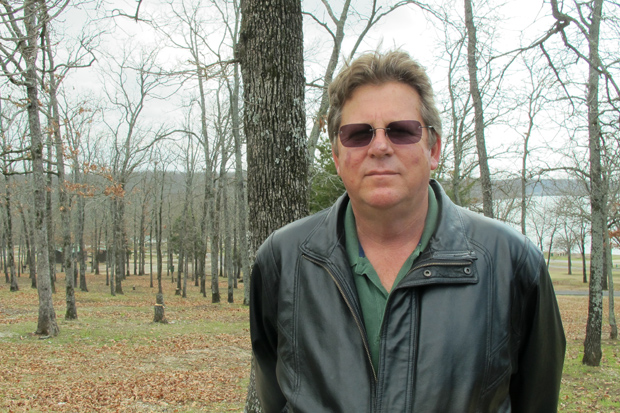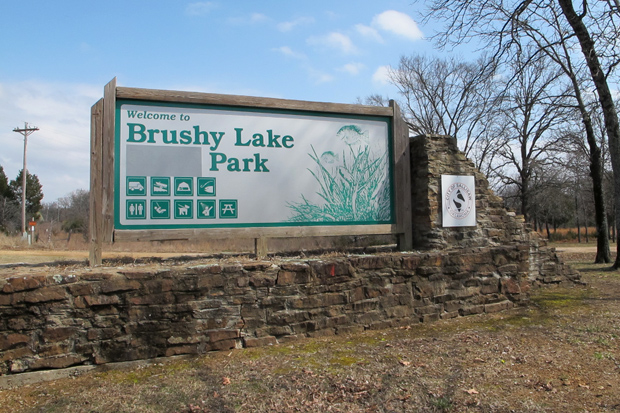
Mike Hancock has been the manager at Brushy Lake Park since 1980.
Logan Layden / StateImpact Oklahoma


Mike Hancock has been the manager at Brushy Lake Park since 1980.
Logan Layden / StateImpact Oklahoma

Logan Layden / StateImpact Oklahoma
Mike Hancock has been the manager at Brushy Lake Park since 1980.
In April 2011, Oklahoma was dealing with a half-billion dollar budget shortfall, and the state tourism department had just decided to offload seven of its parks to save money.
Three years later, StateImpact finds that all seven parks are still open, and at least two — Brushy Lake Park and Beaver Dunes Park — are thriving.
During the budget crisis, Tourism and Recreation Department Director Deby Snodgrass said the parks were chosen — in part — because they had the best chance of staying open with the help of cities, tribal governments, and private landowners. She said the move would save the agency abound $700,000.
Mike Hancock has been the manager at Brushy Lake, near Sallisaw, since 1980. Until 2011, it was a state job. Now he works for the City of Sallisaw.
“We got some advanced warning of it from the state, where they said, ‘OK, we’re going to close you guys down,’” Hancock says. “And they gave us some options that we could use at that time, none of which suited anybody very good.”
When StateImpact visited Sallisaw in 2011, City Manager Bill Baker wasn’t happy. He’d just been told the park was his, and he had to figure out how to pay for it.
“We, at least myself personally, heard about this in the newspaper,” Baker said in 2011. “So we kind of felt like the state was pulling out of this and just leaving us holding the bag.”
Today, Baker’s attitude has changed. And so has the park. Debbie Keith, who keeps track of park data for the city, says it’s actually a little nicer.

Logan Layden / StateImpact Oklahoma
The word 'state' has been removed from the park's entrance sign.
“The RV spaces and the camping spaces stay full, you know, a lot of times. And so we have seen an increase in the use of the park because of it being better maintained,” Keith says.
Go across the state — to Beaver, in the Oklahoma panhandle — and the attitude is the same. Town Administrator J.C. Moser says the little slice of desert known as Beaver Dunes Park, is in better shape now than it ever was when the state ran it. But it hasn’t been cheap.
“It is costing a considerable amount of money to get things fixed up that the state had let go downhill,” Moser says.
He says Beaver residents voted for a sales tax increase to revitalize the park, everything from fixing fences and mowing the grass to digging roots out of septic pipes. It’s a lot of work — a lot of work State Parks Director Kris Marek says her agency couldn’t do when it had control, especially when the budget crisis hit.
We did furlough days and voluntary buyouts, a lot of different things, including consolidating management,” Marek says. “There’s a point where that’s not sustainable, and we had reached that point. That’s when we started looking at what properties could we find another home for.”
Hancock lost his state benefits, and a handful of other park employees weren’t happy about being shuffled to other sites, so not everyone benefited from the transition.
But back in eastern Oklahoma, Mike Hancock, who once thought his park might close without state support, is now happy the city is in charge.
“I haven’t talked to anybody who isn’t glad they kept it open. Everybody’s just relieved. Good thing for the state and good thing for the city probably,” Hancock says.